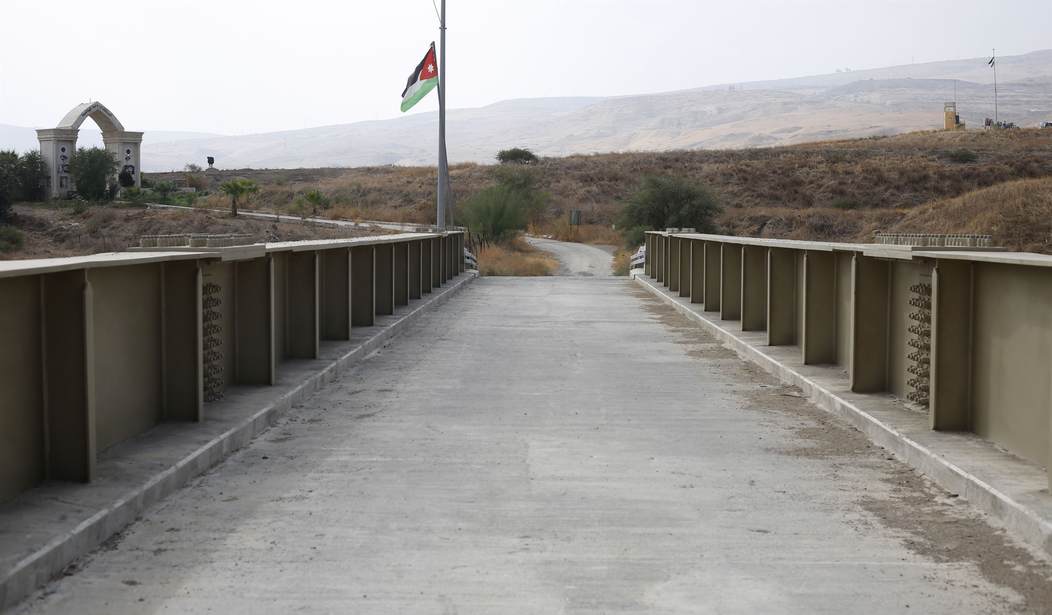Will Israel start “annexing”—the more accurate but cumbersome term is “applying Israeli law and/or sovereignty to”—the Jordan Valley and the Israeli West Bank communities in July?
At the moment, the signals out there are mixed.
On the one hand, a couple of weeks ago State Department spokeswoman Morgan Ortagus said annexation “should be a part of the peace process…part of discussions between the Israelis and the Palestinians…. In fact it will continue to be a major part of our foreign policy to press for the Palestinians to come to the table as a part of this peace plan, as a part of this process.”
Because the Palestinians are dead-set against President Trump’s Deal of the Century for Israeli-Palestinian peace and there’s no chance of them joining any formal discussions of it, Ortagus’s words were widely interpreted as signaling that the Trump administration had gotten cold feet and did not want Israel to go ahead with applying sovereignty on its own.
Yet, on the other hand, just this week Prime Minister Netanyahu told lawmakers from his Likud party that he has “set a July date” for extending sovereignty and “has no intention of changing it.”
And by all accounts, the work of a U.S.-Israeli mapping committee on the annexation is going forward. On the Israeli side it includes the speaker of the Knesset (a close associate of Netanyahu), the national security adviser, and the Israeli ambassador to the U.S.; on the American side, the U.S. ambassador to Israel, his senior adviser, and the director of Israeli and Palestinian Affairs at the National Security Council—important officials all.
A report by reporter-analyst Daniel Siryoti in the Israel Hayom daily strengthens the likelihood that—despite Spokeswoman Ortagus’s seemingly discouraging words—the Israeli move is on track for July.
Israel Gives Palestinians Desperately Needed COVID-19 Aid, Gets Bizarre Blood Libels in Return
Opponents of applying sovereignty say it will needlessly rile or even endanger Israel’s improved—though still mostly under-the-table—relations with Arab states, and will also spark a surge of Palestinian violence. But Siryoti’s report puts at least the former assumption in doubt.
“Behind the scenes,” he says, “moderate Arab leaders are in no rush to prevent Israel from pursuing the territorial bid.”
That would be in contrast to their public statements—especially in the case of Jordan’s King Abdullah, who warned of “massive conflict” with Israel and suspension of the Israeli-Jordanian peace treaty if Israel applies sovereignty to the lands.
Yet, says Siryoti, “over the past few months several Arab leaders have met with senior White House adviser Jared Kushner and US Middle East envoy Avi Berkowitz [and] in essence, given the go-ahead” for the Israeli move.
Why would Arab leaders be giving the go-ahead for Israel to finalize its control of territories it conquered in the 1967 Arab-Israeli war?
A “senior Jordanian official,” Siryoti writes, told him that
if Jordan suspends or cancels the peace agreement [with Israel], it will undermine its position [as custodian of] the holy Islamic sites in Jerusalem.
The king also prefers to see Israeli troops near Jordan’s western border [the Jordan Valley] over Palestinian forces or a multinational peacekeeping mission. Jordan’s security forces have close ties with their Israeli counterparts and with all due respect to Palestinian interests—the king cares more about Jordanian interests. He wants to maintain the kingdom’s status in Jerusalem and his good relations with President Trump.
As for Saudi Arabia, whose tacit ties with Israel have been growing, Siryoti quotes a “senior diplomat considered a confidant of Crown Prince Mohammed bin Salman” who told him:
…the Palestinians need to understand that the entire world, especially the Arab states, has undergone great changes…. With all due respect to the tens of thousands of Palestinians living in the Jordan Valley, Arab states such as Saudi Arabia, Egypt, the UAE and Jordan will not jeopardize their relationship with the Trump administration for them.
…It is time for [Palestinian Authority president Mahmoud Abbas] and his advisers to wake up and realize that global and regional interests have changed. If they again miss an opportunity to establish an independent and sovereign state alongside Israel because of the annexation of the [Jordan] Valley and some of the settlements, they will be left with nothing.
And as for Egypt, a “senior Egyptian security official” said that moderate Arab rulers “see preventing Iran from achieving Shiite hegemony in the Middle East as more important than the Palestinian issue.” The official added, “The United States and Israel are very important [players] in the fight against Iran. No Arab leader will jeopardize his country’s own interest in curbing Iranian expansion for the Palestinians.”
True, Israel Hayom is a right-of-center paper that supports Netanyahu. But these words from Arab officials jibe with all that’s been happening in recent years: Sunni Arab states’ growing appreciation of Israel’s role in fighting Iran, their need for its expertise in both military and civilian fields, their awareness that it is militarily undefeatable, and their alignment with the U.S. and Israel against both the Iranian and radical-Sunni menaces to the region.
Does this mean Israel will go ahead with applying sovereignty to the Jordan Valley and the Israeli communities in July? It’s still not certain, but it now appears increasingly likely. As for the Palestinians, they may indeed react with a wave of violence. But as a perennially recalcitrant party with a victim-identity, violence remains just about all they have to offer.









Join the conversation as a VIP Member